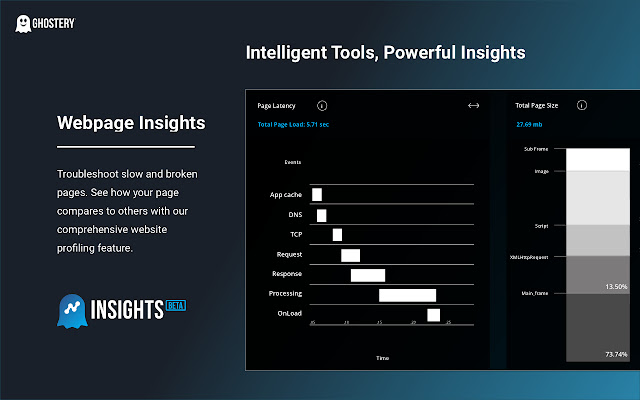How to Pass a Prop Fund Trading Challenge and Get Funding
Imagine this: Youre a skilled trader, but youve always struggled with the challenge of finding capital to scale your trading. You know your strategy works, but youre limited by your personal funds. What if there was a way to prove your skills and access funding without risking your own money? Enter the world of prop trading challenges.
In recent years, prop trading challenges have gained massive popularity as a way for talented traders to prove their abilities and gain access to substantial capital. But how do you pass the challenge and secure funding? Let’s break it down.
What Is Prop Fund Trading?
Proprietary trading (or "prop trading") is when a firm uses its own capital to trade financial instruments, rather than trading on behalf of clients. Prop funds offer traders the chance to manage large sums of money based on their performance in a trading challenge. These challenges are designed to test your skills, risk management, and consistency—essentially allowing you to prove that youre worthy of the firm’s capital.
The good news? You don’t need to have a huge personal account to get started. If you pass the challenge, you’ll get access to funding, and the potential to profit from higher stakes without using your own capital.
How Do You Pass a Prop Trading Challenge?
The key to passing a prop fund trading challenge is mastering a few core principles. Here’s what you need to focus on:
1. Risk Management is Everything
When you’re trading for a prop firm, risk management isn’t just a good practice—it’s a necessity. Firms want to see that you’re able to take calculated risks, not reckless ones. Many challenges have strict rules around drawdowns, meaning you cant lose more than a set percentage of your trading account.
For instance, if youre in a forex challenge with a $100,000 balance and the firm’s rule is a 5% maximum drawdown, you can only lose $5,000. Staying within these limits requires discipline and a strong understanding of how much risk to take per trade.
Pro Tip: Stick to a risk-to-reward ratio of at least 1:2, meaning you aim to make twice the amount you risk on each trade. This increases your chances of staying in the game, even during losing streaks.
2. Consistency is Key
Prop firms are not just looking for traders who can score big wins—they want consistency. You might be an expert at pulling off huge gains once in a while, but prop firms care more about how you perform over time.
Focus on steady, incremental growth rather than chasing big profits. Trading isn’t about the occasional jackpot; it’s about regular, predictable profits with controlled risk. For example, a trader who earns 2-3% consistently over time is often more appealing than one who risks everything on a single trade hoping for a 50% return.
3. Understanding the Rules and Guidelines
Each prop fund has its own specific rules, which can include things like daily loss limits, minimum trading days, maximum position sizes, and even the instruments you’re allowed to trade. Failing to understand these rules can cost you the challenge, so make sure you know exactly what is expected before you start.
A common rule across most prop trading challenges is that you must trade a certain number of days within the challenge period. This requirement ensures that you’re able to show consistency in your approach. Missing out on this could disqualify you, no matter how profitable you’ve been.
4. Selecting the Right Prop Fund
Not all prop trading firms are created equal. When choosing a firm, make sure to research their reputation, payout structure, trading platforms, and funding options. Look for firms that offer a generous profit split and clear guidelines, as well as strong support for traders.
Some prop funds even offer different programs for different levels of traders, so you’ll want to pick one that suits your trading style and skill level. Some firms allow you to trade multiple asset classes, from forex and stocks to crypto, commodities, and indices.
The Benefits of Prop Fund Trading
Leverage: One of the most appealing aspects of prop fund trading is the ability to trade with capital you don’t own. Imagine having access to $100,000 or more to trade with—this opens up a whole new world of possibilities compared to personal accounts.
Diversification: Many prop funds let you trade a variety of assets. You could be trading forex today, stocks tomorrow, and crypto the next day. This diversification reduces risk and helps you adapt to different market conditions.
Capital Growth: Successful prop traders can scale their accounts over time. Firms often offer more funding as you prove your abilities. Essentially, you’re building a portfolio without using your own funds.
5. Trading in a Decentralized World
The world of finance is rapidly changing with the rise of decentralized finance (DeFi). While traditional prop trading has been centered around centralized institutions, the advent of decentralized exchanges (DEXs) and smart contracts is altering the landscape.
DeFi platforms are providing new opportunities for retail traders to access liquidity and markets without the need for traditional intermediaries. This shift can complement your prop trading journey—by embracing new technologies, you can stay ahead of the curve and capitalize on emerging trends.
However, DeFi also comes with its own challenges. The absence of regulation can increase risk, and liquidity can sometimes be thinner than on centralized platforms. That’s why it’s important to stay informed and be cautious about which platforms you engage with.
The Future of Prop Fund Trading
Prop trading is evolving. With AI-powered trading strategies and smart contracts becoming more prominent, the industry is ripe for innovation. AI-driven trading systems are already helping firms to optimize their risk management and find profitable opportunities faster than ever before.
Additionally, smart contracts allow for faster and more secure transactions, cutting down on costs and increasing transparency. As more firms adopt these technologies, prop traders will have access to cutting-edge tools that could further enhance their trading success.
In this rapidly changing environment, staying flexible and open to new trading technologies is key to long-term success. Embrace the tools and platforms that are shaping the future of the financial markets.
Conclusion
So, if youre wondering how to pass a prop fund trading challenge and unlock the doors to funding, the answer lies in mastering risk management, demonstrating consistency, and understanding the rules of the game. With the right mindset, strategy, and a bit of patience, prop fund trading could be the key to scaling your trading career without the need for significant personal capital.
Ready to prove your skills? The world of prop trading awaits—are you ready to take the challenge and secure your funding?



